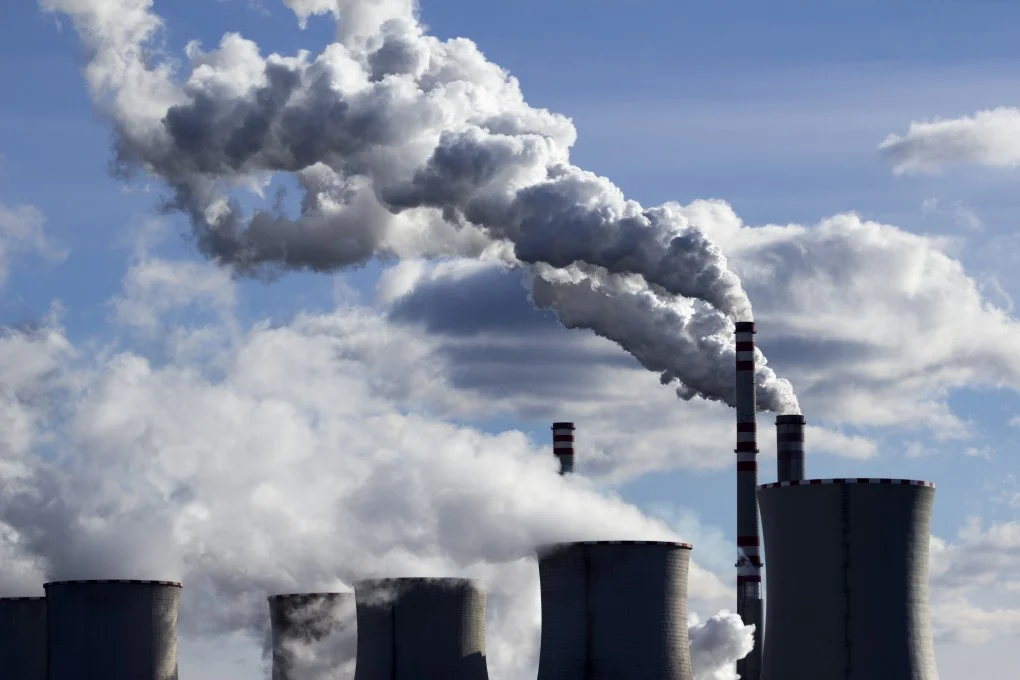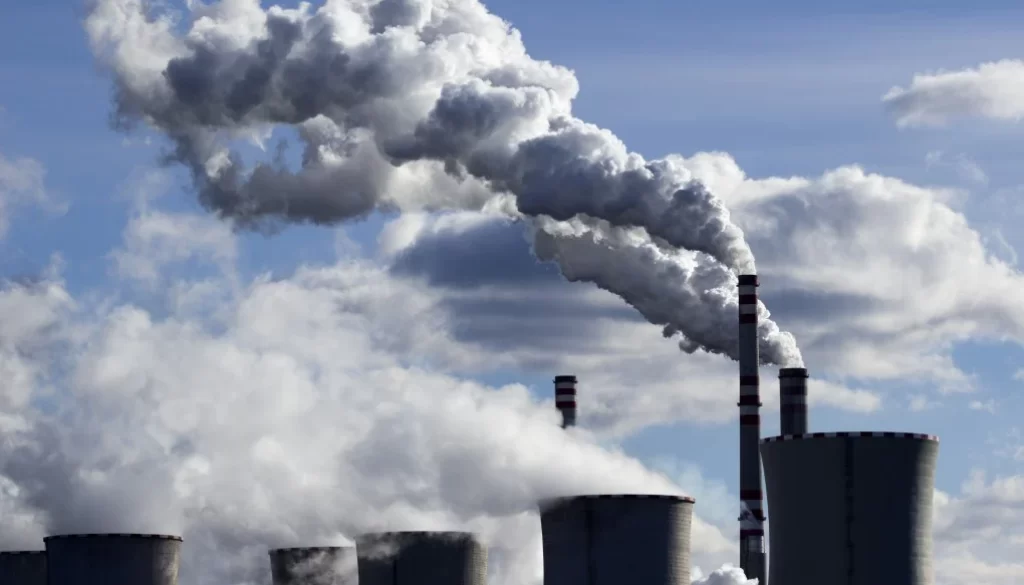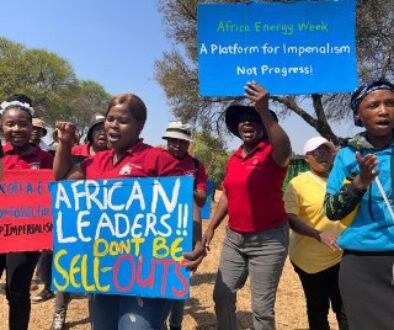Africa Climate Justice Collective intensifies advocacy on climate justice for the Global South
By Edgar Gweshe
The African Climate Justice Collective (ACJC) held its first physical African People’s Counter COP (APCC) in Saly, Senegal from October 7-10.
Participants during the meeting were drawn from social movements, grassroots communities, civil society organisations, academics, experts, workers, and others from 21 countries namely, Benin, Burkina Faso, Cameroon, Côte d’Ivoire, Democratic Republic of Congo, Gabon, Gambia, Ghana, Kenya, Mali, Mauritius, Mauritania, Madagascar, Mozambique, Niger, Nigeria, Senegal, Sierra Leone, South Africa, Togo and Zimbabwe.
The event served as a platform to highlight the impacts of climate change on African communities while showcasing viable alternative solutions that have emerged through knowledge sharing and activism from grassroots African communities, experts, activists and CSOs.
This, according to the APCC, is in response to the exclusion of African voices from the United Nations Framework Convention on Climate Change Conference of Parties (UNFCCC COP) “which has been captured by Global North states and corporations that continue to fuel the climate crises while falsely claiming to solve the causes of climate change”.
“The APCC created a space where the voices of grassroots communities and activists were heard and lauded in contrast to the COP where these voices are marginalised. Delegates shared their stories of climate change impacts – droughts, floods, erosion, crop failure, cyclones, sea level rise, dust storms and threats to marine and terrestrial ecosystems compounded by resource and land-grabbing, and climate-induced conflict. This has resulted in displacement, loss of livelihoods, related losses and damages, victimisation, arrests, harassment and even death of community members and activists who have defended their territories,” read a Communique from the meeting.
Participants at the APCC session observed that the climate crisis across Africa is cross-cutting while noting that Africans have caused limited contributions to the emissions that give rise to climate change.
“However, as Africans, we face the majority of challenges caused by the climate crisis that ravages the continent today. To dismantle exploitative power and impunity, the African people assert our power to relegate false narratives,read the Communique.
Below, we capture the recommendations as highlighted in the ACJC Communique;
• Climate Justice Now: We demand climate justice for Global South communities at the centre of the climate crisis. The Global North Nations who have contributed the most to the crisis must lead the process of cutting emissions at source, and fund the needed energy transition as payment for the climate debt owed to the Global South. We call for reparations, remediation and compensation to the impacted peoples of Africa. We denounce all forms of false solutions to climate change such as REDD+, Net zero, and Geo-engineering which further entrenched the climate crises.
• End Fossil Fuel Extractions Across Africa NOW: All forms of fossil fuel exploration, extraction and production across Africa must be halted immediately. It is time to prioritize sustainable practices through people-centred renewable energy that protects our ecosystems and supports local economies. Fossil fuel companies must pay for the rehabilitation of degraded land, oceans and rivers resulting from hydrocarbon extraction.
• Migration and Climate-Induced Displacement: With increasing climate crises, many Africans are forced to migrate, risking their lives in dangerous journeys to the Global North or becoming climate refugees within Africa leading to food, land and conflict insecurities. Addressing this requires mitigating climate impacts, such as droughts, flooding, and desertification, and ensuring that communities have the resources to remain in their homelands.
• Climate Debt, Reparations, and Economic Reforms: Climate reparations, alongside colonial reparations, must be paid to African nations and the Global South, reflecting the scale of damage caused by climate change and historical exploitation. These reparations should be in the form of grants, not loans that further entrench debt. African countries should focus on value-added beneficiation, and strategic partnerships, that elevate Africa’s position in the value chain. There is an urgent need for structural tax reform of the current financial architecture that will ensure transnational corporations (TNCs) pay the highest tax rates in the host countries where they extract resources, rather than in their headquartered nations.
• Reform Land Laws and Promote Food Sovereignty: African governments must embrace food sovereignty by prioritizing local food crops over cash crops and promoting seed preservation methods that resist GMOs. This protection must include ratified binding policies such as the United Nations Declaration on the Rights of Peasants and Other People Working in Rural Areas. There is an urgent need to reevaluate customary laws that empower local communities.
• Energy Democracy for All: The shift to renewable energy within Africa must be supported as a priority before Africa exports our resources for the Global North’s transition. Renewable energy projects must be socially owned and benefit local communities before industry. The transition must be grassroots-driven, ensuring that policies prioritise the well-being of people and the environment, not corporate profits.
• Stop Waste Colonialism: Africa is not a dumping ground and we are not disposable. It is therefore paramount for us as Africans to adapt to the Global Plastics Treaty which allows us to address plastic pollution across its lifecycle, from extraction to production to disposal.
• FPIC and Right to Say No: Communities’ rights to Free Prior and Informed Consent (FPIC) need to be ratified and implemented in all extractive projects. Communities must have the right to say no or yes to development. Should communities say yes, they should dictate the terms of the project in a manner that benefits them and their environment. Compensation should be commensurate to the level of displacement and losses.
9. Resilience building in Africa: Africans should rise against Systematic Oppression and climate injustice by sharing their resilience skills and traditional knowledge through storytelling, experience sharing, and learning and put this knowledge into practice in our African communities. This knowledge must be respected and incorporated into other systems and processes, as it is expert knowledge.
In conclusion, the African People’s Counter COP is held because the COP has been co-opted by capitalism and the Global North which continues to replicate the injustices that caused the climate crisis. Therefore, we as the Global South, and Africans in particular, need to lead actions that remedy the climate crises in a manner that is just and holistic.




